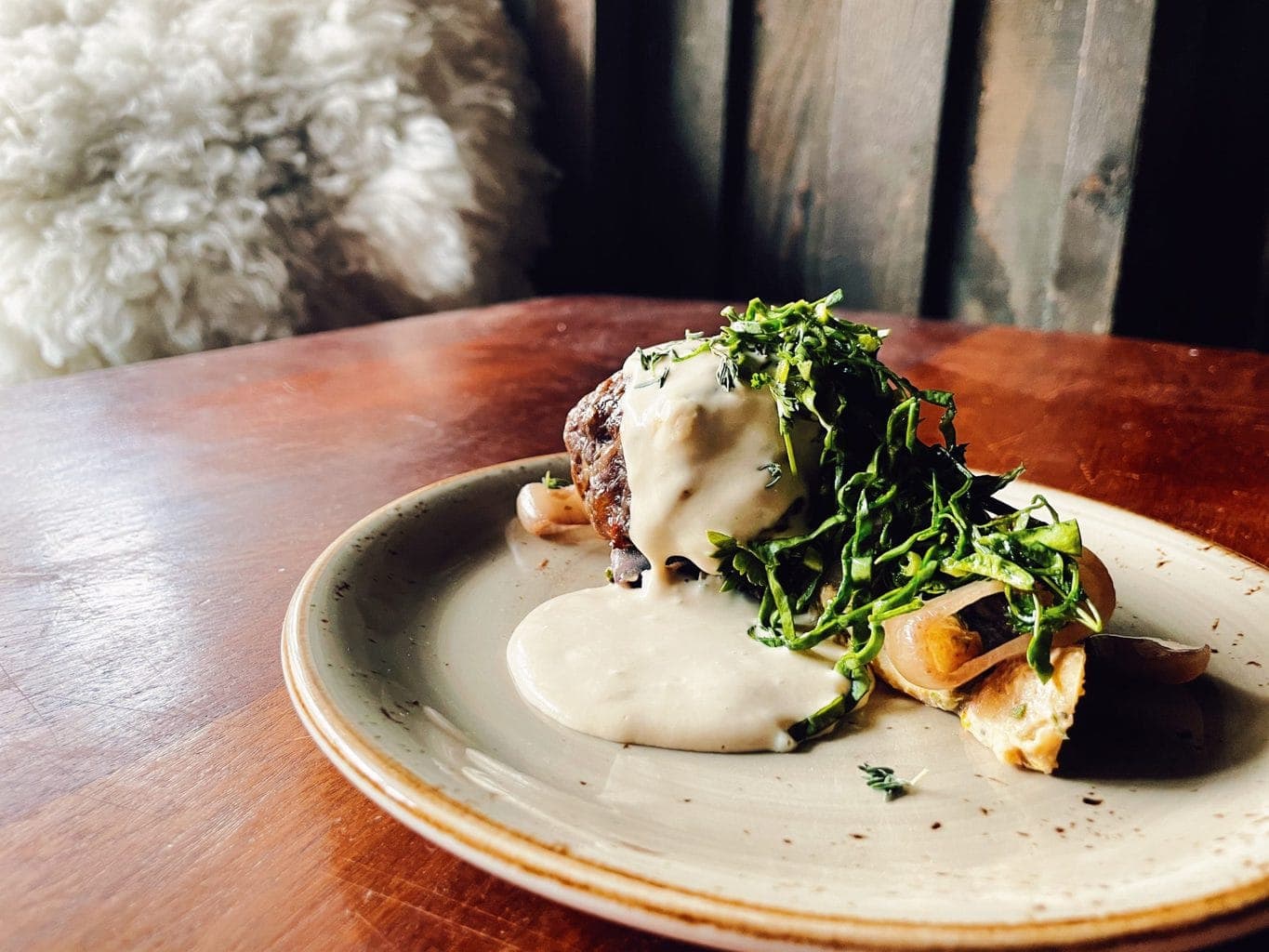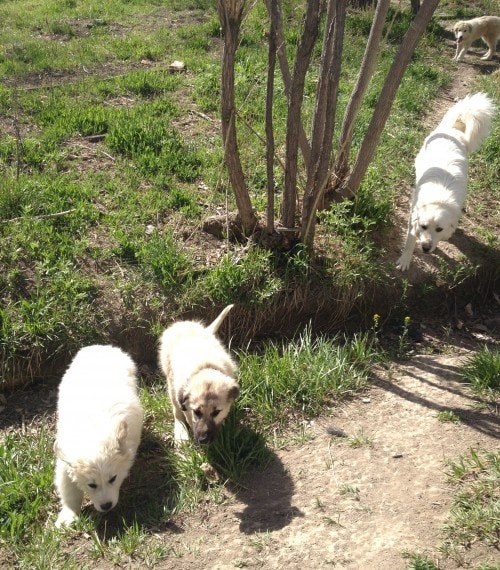
A pleasant surprise
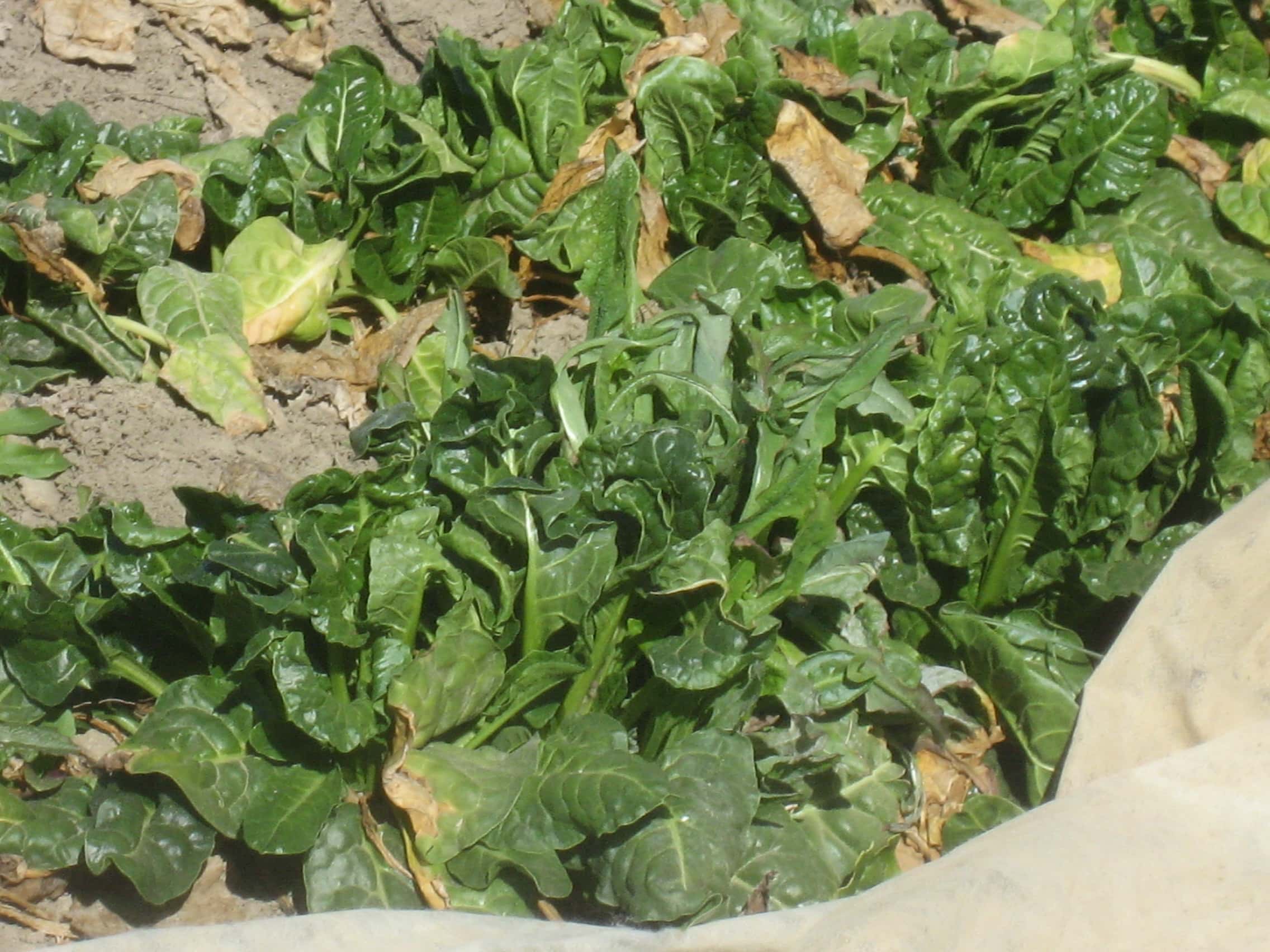
During winter, vegetable farmers typically take a break and then begin planning for next year and working on infrastructure items like fixing and buying equipment. (Over the winter, Eric and Jill purchased a former RTD mini-bus to transport produce and purchased an electric tractor.) The fields are often fallow.
Black Cat Farm plants hardy greens, like spinach and mache, in mid- or late-winter, shrouding them in row cover cloth during the cold weather to protect them. The intent is to supply Black Cat Farm-Table-Bistro and Bramble and Hare with fresh greens through early winter and supply the Boulder Farmers’ Market booth and restaurants in spring.
This year, four-season farming became more of a reality as Black Cat farm workers were able to harvest greens for nearly the entire winter.
Planting
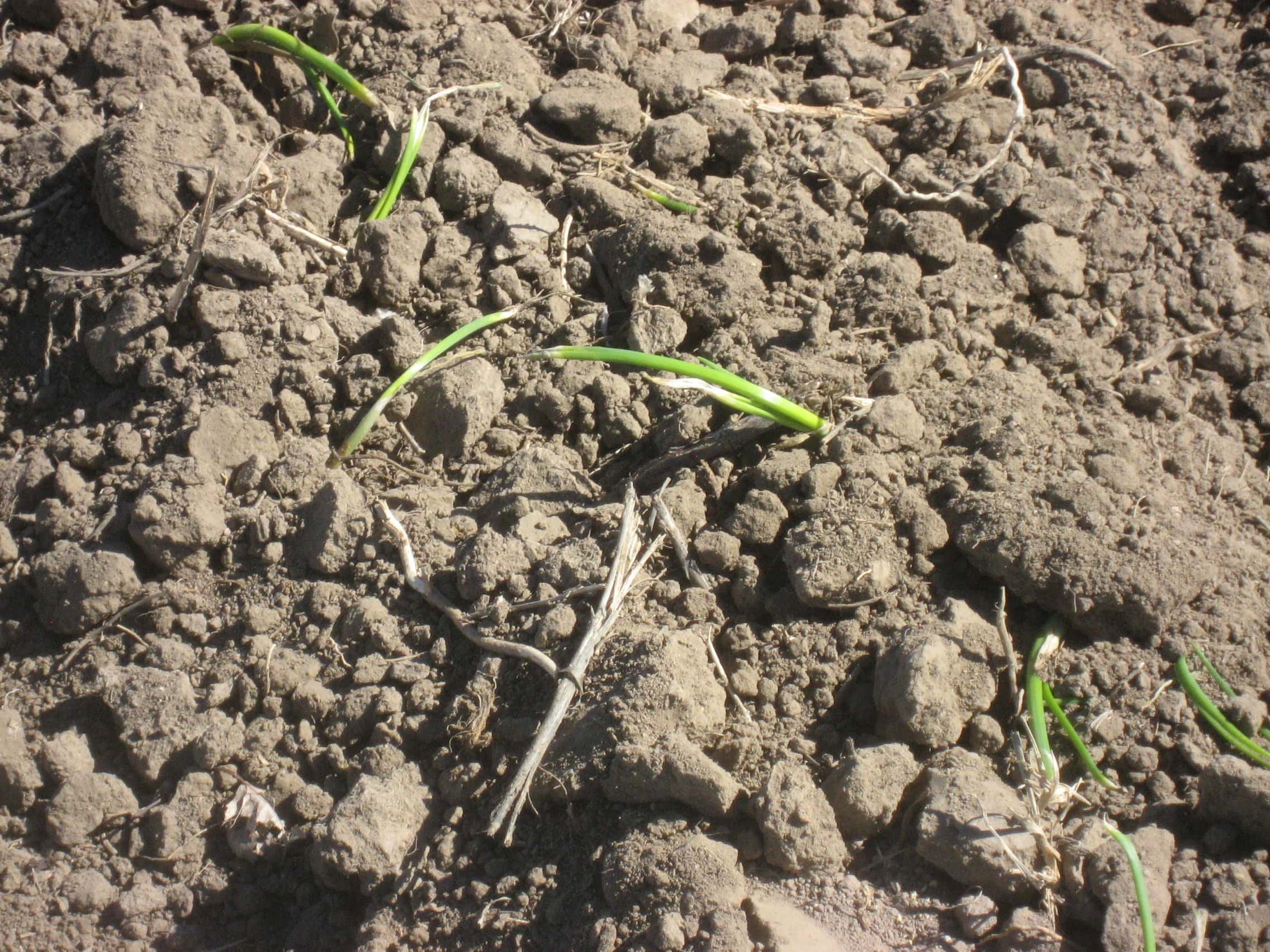
Once spring rolls around, as soon as the soil is warm and dry enough, farmers get swept up in a whirlwind of preparing the ground and planting seeds and, later, seedlings.
The Black Cat Farm is no exception though it has been short-handed so the effort has been more arduous than usual. Eric and Black Cat farmer Chip Bartholomay have been working long and hard hours the last few weeks on planting. They planted 50,000 onion and leek starts as well as seeds for lettuces, Asian greens (bok choy, tatsoi, etc.), peas, radishes, beets, carrots, fava beans, and more. As a part of their curriculum, August Escoffier School of Culinary Arts students have been dropping by once a week to help.
Irrigation water will not be available until the end of the month and the lack of moisture has necessitated watering the the planted fields with city tap water, which is exponentially more expensive than irrigation water. Eric said,”We’ll spend more on irrigation in the next three weeks than on the rest of the year (with eight times the acreage planted.”
Livestock news
After years of careful tending, the pigs and sheep herd have gradually burgeoned in number even while they have regularly been providing the restaurants with pork and lamb.
Just as in the game of Monopoly, a measure of success and prosperity is the possession of a goodly amount of real estate, one index of the success of livestock farmers is their breeding program and the subsequent size of their herds. Another, of course, is the happiness of the animals and their ability to live as natural life as possible for their breed. Black Cat Farm animals are not confined indoors and have plenty of room to roam, so piggy and sheep behavior is constantly on parade.
Oink report
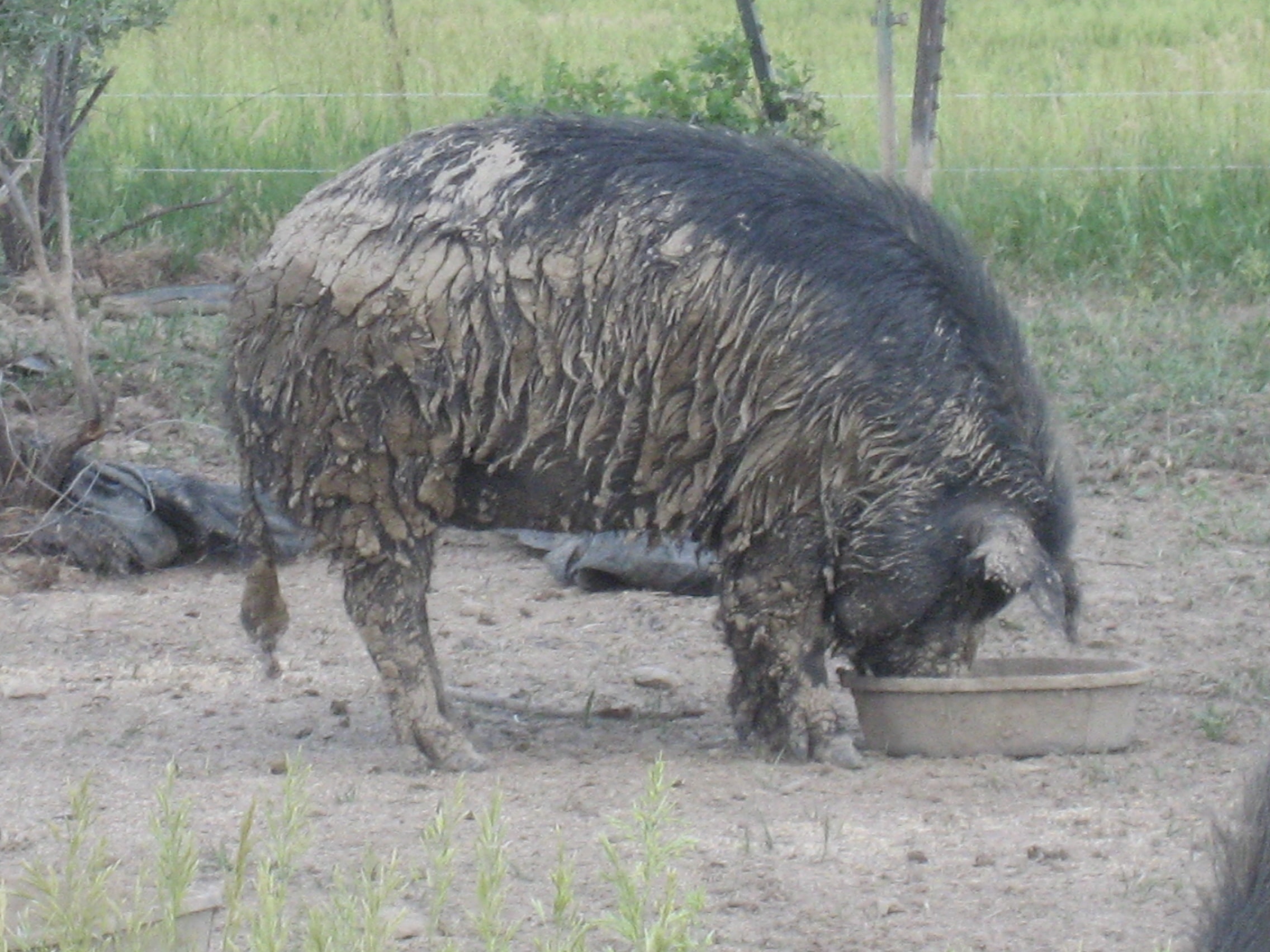
After arriving at the Black Cat Farm 63rd Street site, your first thought might be, “So many pigs.” And you would be right. There are several groupings of pigs in different parts of the property–a riot of black Mulefoot, black-and-white-spotted mixed-breed, and a few roan-and-white Hereford pigs, separated from the nearby vegetable fields by electric fences.
What started as a handful of Mulefoot pigs are now 90 feeder and 20 breeder pigs, 110 in all. (Feeder pigs become dinner while breeder pigs beget piglets.) Their number will enable the farm to 2.5 times a year harvest 45-50 pigs.
Meanwhile, Jill and Eric have been experimenting with cross-breeding Mulefoot and Hereford heritage breed pigs. Eric loves the taste of Mulefoot pigs but they grow slowly and farrow small litters. Hereford pigs have larger litters but don’t taste as good as Mulefoot ones.
Jill and Eric have been working towards pigs that are 75% Mulefoot and 25% Hereford. The theory is that these cross-bred pigs will inherit the taste profile of the Mulefoot and breeding efficiency of the Hereford. Since this project started, over a year ago, they have seen larger litters while moving to the targeted cross. The farrowing season has resulted in the first 75% Mulefoot and 25% Hereford piglets. Once they reach maturity, Jill and Eric will find out if the cross is a success and results in delicious-tasting pigs.
More about the sheep
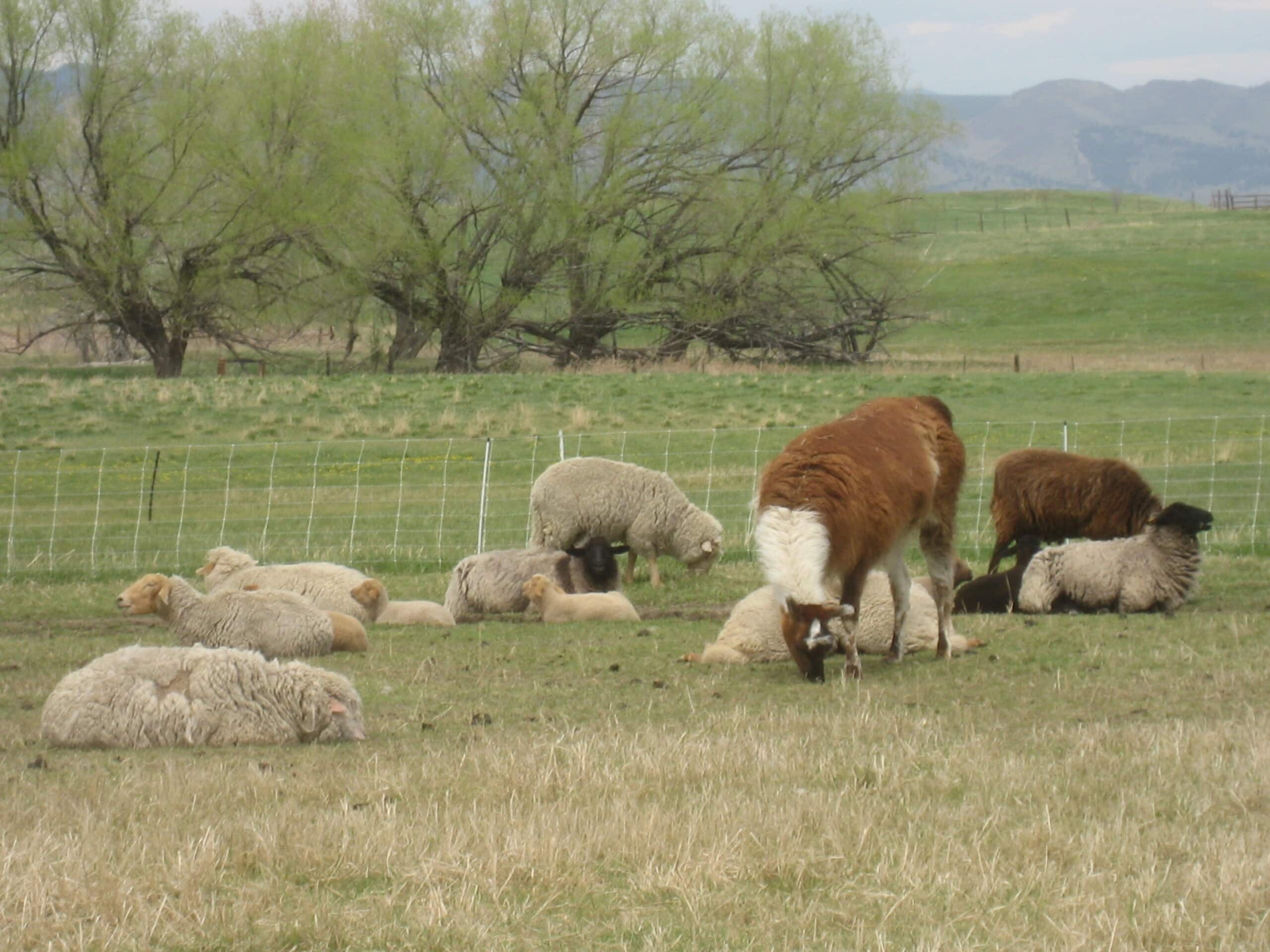
The sheep reside in a 60-acre pasture not far from the new Black Cat Farm asparagus fields and just off Jay road. The pasture has underground irrigation, which provides 32 to 42 inches of moisture per year. This enables the grass to grow fully and provide lush forage for the sheep. (As a point of comparison, Boulder generally experiences 18 inches of rainfall per year.)
In December, the ewes were bred with the two rams so that they would give birth in late April and May. While last year’s lambing resulted in a very large number of twin births (possibly due to the pasture grass quality), it occurred earlier in the spring and snow sometimes made the process difficult. This year, Eric and Jill delayed breeding so the grass would have more time to grow and there would be warmer weather.
After lambing, the Black Cat flock should number close to 200 sheep. Baaa!
Love those livestock guardian dogs
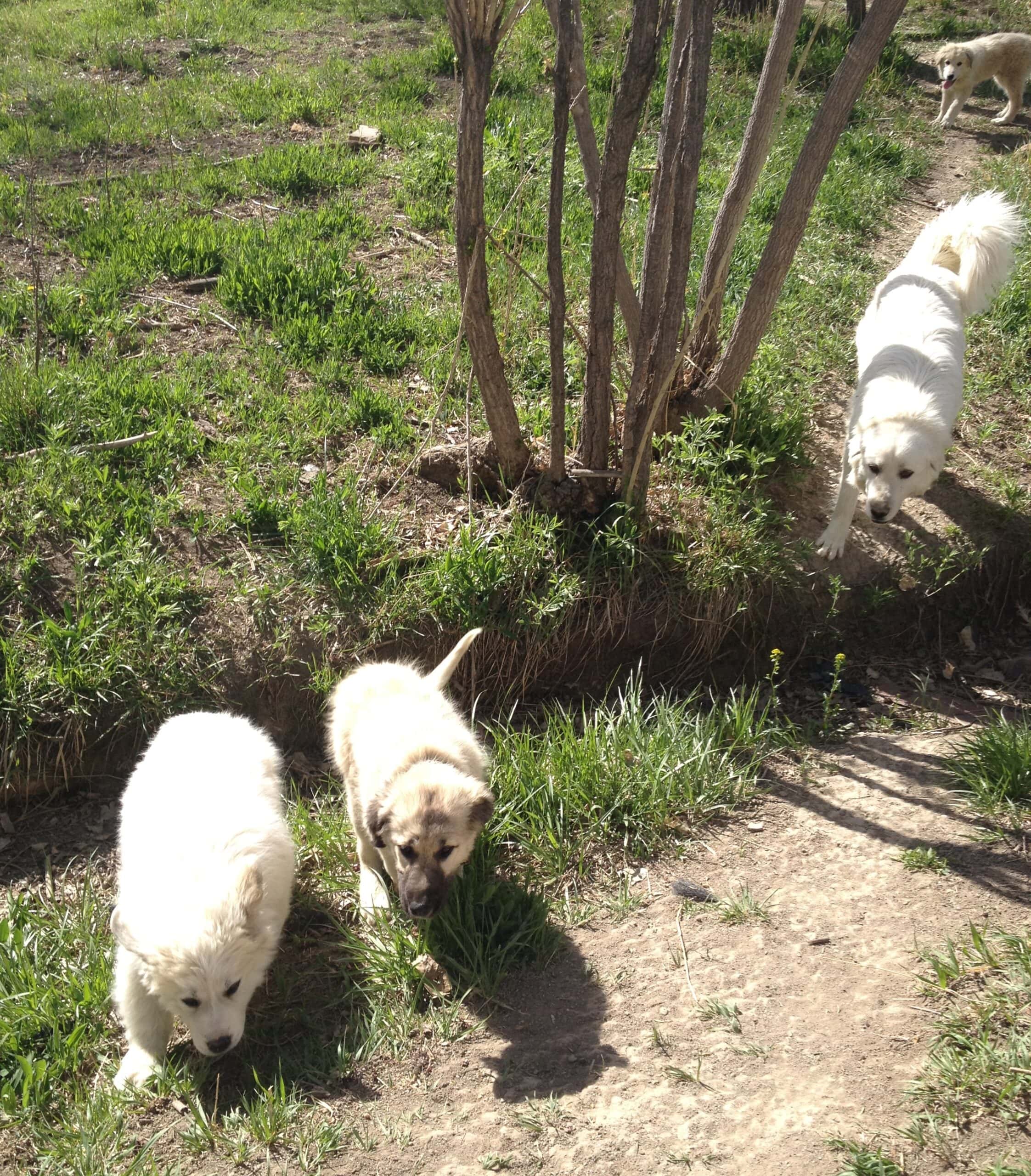
With all of those sheep come the need for more dogs to protect them from predators. Originally, a llama protected the sheep. When the sheep increased in number to eleven, Jill and Eric added Chloe, an Akbash-breed large dog with a wooly white coat. The Akbash is a Turkish livestock guardian dog that is so protective of their charges that they will confront and aggressively chase off predators. Eric says that Chloe is a sweetie with humans and has a tendency to leap over tall fences.
Last year, they added Toska, a Great Pyrenees livestock guard dog and last week they brought home three four-month-old livestock guardian dog puppies. Two of the puppies are a mix of two Turkish livestock guardian dog breeds, Akbash and Kangal. The other pupply is of Great Pyrenees ancestry. Unlike with herding dogs, humans do not train livestock guard dogs. Their protective behavior is in their nature with older dogs teaching younger dogs, so Chloe and Taska will teach the puppies. Human socialization blunts and interferes with their instincts, so minimal human contact is necessary for them to be most effective. Dog lovers do not always find this easy. Eric mentions bringing a friendly and affectionate Chloe her dinner and having to immediately depart rather than stay and give her the attention that he would lavish on a pet.
Puppy-naming contest!
While the puppies all arrived with names from the breeders, we would like to give them new names.
If you would like to help name the puppies, there will be a naming contest through the Black Cat Facebook page. For more information about the contest once it is posted: https://www.facebook.com/Blackcatboulder
